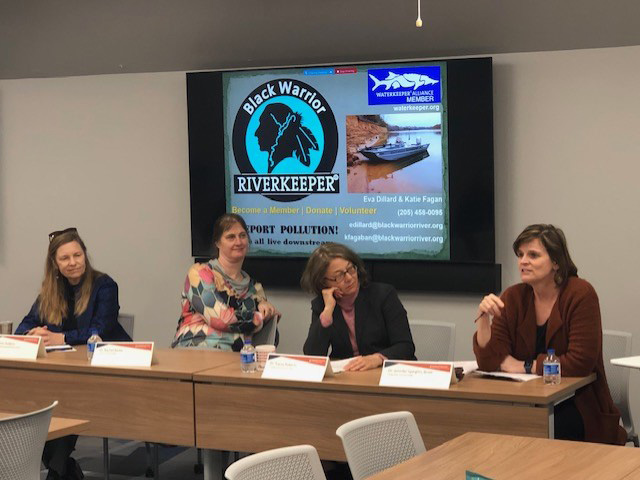
In honor of Women's History Month, Samford University's Howard College of Arts and Sciences and the Office of Diversity and Intercultural Initiatives hosted the "State of the State's Water: Why Women Should Care" event on March 15, featuring Black Warrior Riverkeeper attorney Eva Dillard and outreach coordinator Katie Fagan. With a panel of Samford faculty members, Dillard and Fagan addressed several of Alabama's environmental issues, some of which were eye-opening for students.
"I didn't realize how much of an impact living in a certain location could have on a person's susceptibility to contracting a disease, especially those just a few miles away," junior health sciences major Jake Walker said.
JWalker had no idea lower-income areas were more susceptible to degraded water quality. Past redlining laws marked districts (based on race and income status) as "undesirable," which incentivized companies to move there due to cheaper land rates. These same companies infected communities' water supply by illegally dumping and polluting the air with toxic waste or byproducts.
"The stunning part of their presentation was that the legislature and agencies responsible for maintaining water quality are not proactive in protecting all of us," said Department of Biological and Environmental Sciences professor Betsy Dobbins. "For example, neither the legislature nor the Alabama Department of Environmental Management (ADEM) has developed regulations for PFAS and other harmful chemicals in our air, water and soil."
These toxins can also cause cancer, delay development and negatively affect women's reproductive health. Sophomore biology major Sadie Wright said, "Because these chemicals bioaccumulate in fat, and women naturally have more fat than men, women are at a greater risk of being affected by pollutants. When the homeostasis within the body is disrupted, cells aren't signaled to quit dividing and can also cause cancer."
"If we want the legislature and ADEM to respond and protect our children and us, we need to advocate for ourselves and clean water," Dobbins said.
"Although it's extremely hard to get people to care enough to get involved without specific evidence and statistics, Fagan claims that their goal is to start with getting people involved with litter cleanups and then move onto bigger aspects once they're drawn in," Wright said.
Wright said this event educated her on the issues and inspired her to advocate for those less fortunate.
"It's easy to forget that just because you're content and have everything you need, it doesn't mean everyone does," she said. "I'm from Tennessee, and I'm proud of it. However, many impoverished people are affected by environmental issues that need to be addressed. Dillard and Fagan's talk opened my eyes to look at life and the world around me differently."
"I thought they both did an exceptional job and were passionate about their work," Walker said. "I learned a good deal from their talk and am interested in hearing more."
The Black Warrior Riverkeeper's mission is to protect and restore the Black Warrior River and its tributaries. The nonprofit also addresses Alabama's pollution problems while increasing public awareness.
Learn more about the Black Warrior Riverkeeper.
